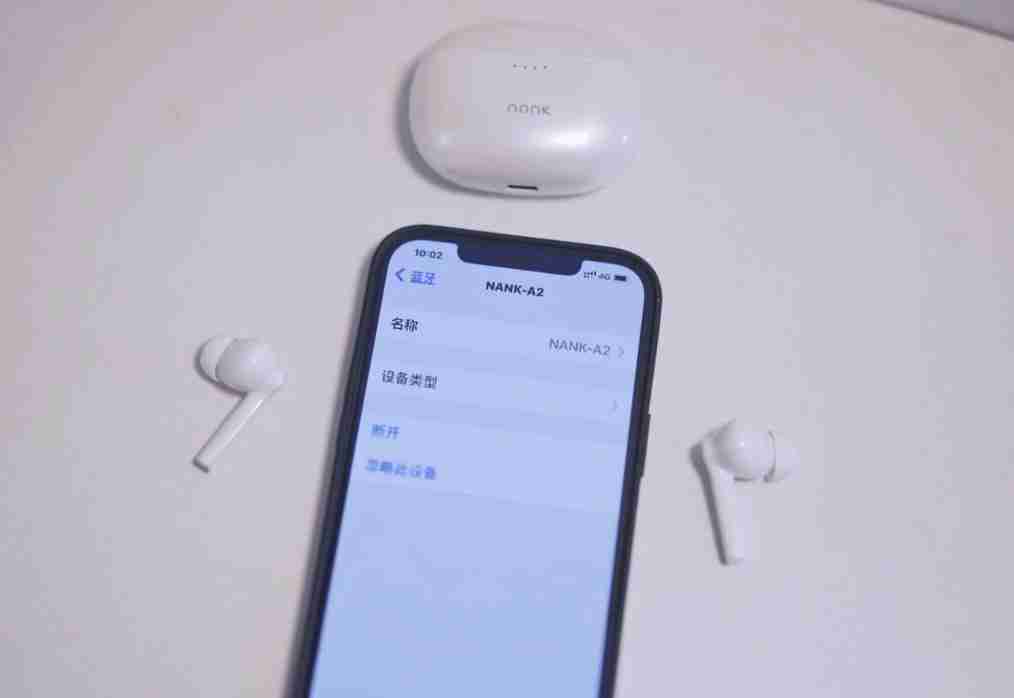当前位置:网站首页>17. File i/o buffer
17. File i/o buffer
2022-07-04 01:59:00 【666QAQ】

Simply put, system calls and stdio I/O Function in When working with disk files Data will be buffered .
Because the disk is too slow to read and write , And memory is faster .
Kernel buffer cache
The first is the system call , Such as write() and read(), Disk access will not be initiated directly when operating disk files , But in User space buffer And Kernel buffer cache Assign data between .
The kernel will Kernel buffer cache The data in is exchanged with the disk .
Control kernel buffer
Too hard, too hard , It doesn't work ... Temporarily abandon ...
stdio buffer
and stdio The library also maintains its own buffer ,stdio buffer By system call (write()、read()) And Kernel buffer cache Data exchange between .
control stdio Buffering of streams
fflush()
Use fflush() You can force stdio The data in the output stream is refreshed to Kernel buffer .
#include <stdio.h>
int fflush(FILE *stream);
Returns 0 on success, EOF on error
- If parameter
streamby NULL, befflush()Will refresh allstdiobuffer . - Also can be
fflush()For input stream , This will discard the buffered data . - When the corresponding flow is closed , Will automatically refresh its
stdiobuffer . - Include
glibcMany, including libraries C Function library implementation , ifstdinandstdoutPoint to a terminal , So whenever fromstdinWhen reading input in , Will be implicitly called oncefflush(stdout)function . This will refresh the writestdoutAny tips for , But not including the terminating newline .( But it's not SUSv3 or C99 Stipulated .)
setvbuf()
#include <stdio.h>
int setvbuf(FILE *stream, char *buf, int mode, size_t size);
Returns 0 on success, or nonzero on error
Parameters
streamIdentify the buffer of the file stream to be modified , After opening the stream , You must call any otherstdioCall... Before the functionsetvbuf().setvbuf()Will affect all subsequentstdiooperation .
ParametersbufandsizeFor the buffer to be usedIf parameters
bufNot for NULL, Then it pointssizeSize of memory block asstreamThe buffer . This buffer should be allocated on the heap .if
bufby NULL, thatstdioAutomatically forstreamAllocate a buffer ( Unless you choose unbuffered I/O),SUSv3 It is allowed but not mandatory for the library to implementsizeTo determine the size of its buffer .glibcThe implementation will ignoresizeParameters .modeParameters- _IONBF
incorrect I/O Buffering . EverystdioThe library function immediately callswrite()perhapsread(), And ignorebufandsizeParameters , You can specify two parameters asNULLand0..stderrIt belongs to this type by default , So that the error can be output immediately . - _IOLBF
Use line buffering I/O. The stream that refers to the terminal device belongs to this type by default . For output streams , Output a line break ( Unless the buffer is full ) Data will be buffered before . For input streams , Read one line of data at a time . - _IOFBF
Fully buffered I/O. Single reading 、 Writing data ( adoptwrite()perhapsread()system call ) Is the same size as the buffer . The stream that refers to disk adopts this mode by default .
- _IONBF
Examples of use :
#define BUF_SZIE 1024
static char buf[BUF_SIZE];
if(setvbuf(stdout, buf, _IOFBF, BUF_SIZE) != 0)
{
printf("setvbuf");
exit(EXIT_FAILURE);
}
setbuf()
#include <stdio.h>
void setbuf(FILE *stream, char *buf);
setbuf(fp, buf) Except that the call does not return the result of the function , Equivalent to :setvbuf(fp, buf, (buf != NULL)? _IOFBF : _IONBF, BUFSIZ
- The parameter
bufDesignated asNULLNo buffer , Or point to the assigned by the callerBUFSIZByte size buffer .(BUFSIZDefined in<stdio.h>Header file .glibcThe library implementation defines this constant as a typical value 8192).
setbuffer()
#define _BSD_SOURCE
#include <stdio.h>
void setbuffer(FILE *stream, char *buf, size_t size);
setbuffer() The function is similar to setbuf() function , But the caller is allowed to specify buf Size of buffer .
Yes setbuffer(fp, buf, size) But with the following calls :setvbuf(fp, (buf != NULL) ? _IOFBF : _IONBF, size)
Mix library functions and system calls for file I/O
Execute on the same file I/O In operation , You can also combine system calls with standards C Mixed use of language function libraries . This needs to be fileno() and fdopen() function .
#include <stdio.h>
int fileno(FILE *stream);
Returns file descriptor on success, or -1 on error
FILE *fdopen(int fd, const char *mode);
Returns (new)file pointer on success, or NULL on error
- Given a ( file ) flow ,
fileno()Function will return the corresponding file descriptor ( namelystdioThe file descriptor that the library has opened on this stream ). Then you can use it in places such asread()、write()、dup()、fcntl()And so on. I/O This file descriptor is normally used in system calls . fdopen()Function andfileno()The function does the opposite . Given a file descriptor , This function will create a file that uses this descriptor I/O Corresponding flow of .modeParameters andfopen()FunctionmodeParameters have the same meaning . for example ,w For writing ,a To add . If this parameter is the same as the file descriptor fd The access mode of is inconsistent , On the other handfdopen()Call to will fail .
fdopen() Especially useful for unconventional file descriptors , Such as socket 、 The Conduit , Creation time , System calls always return file descriptors . In order to use in this series of document types stdio Library function , You have to use fdopen() Function to create the corresponding file stream .
Mixed use , Keep in mind :I/O The system call will directly pass the data to Kernel buffer cache , and stdio The library function waits until the stream buffer in user space is full , Call again write() Pass it on to Kernel buffer cache .
for example :
printf("123\n");
write(STDOUT_FILENO, "456\n", 4);
The result is :
456
123
have access to fflush() To avoid this problem :
printf("123\n");
fflush(stdout);
write(STDOUT_FILENO, "456\n", 4);
Execution results :
123
456
边栏推荐
- Hunan University | robust Multi-Agent Reinforcement Learning in noisy environment
- Small program graduation project based on wechat reservation small program graduation project opening report reference
- On Valentine's day, I code a programmer's exclusive Bing Dwen Dwen (including the source code for free)
- High level application of SQL statements in MySQL database (I)
- A fan summed up so many interview questions for you. There is always one you need!
- Example 073 square sum value judgment programming requires the input of a and B, if a ²+ b ² If the result of is greater than 100, a is output ²+ b ² Value, otherwise output the result of a + B.
- mysql使用視圖報錯,EXPLAIN/SHOW can not be issued; lacking privileges for underlying table
- 51 single chip microcomputer timer 2 is used as serial port
- Learn these super practical Google browser skills, girls casually flirt
- LeetCode 168. Detailed explanation of Excel list name
猜你喜欢

What is the student party's Bluetooth headset recommendation? Student party easy to use Bluetooth headset recommended

Valentine's Day - 9 jigsaw puzzles with deep love in wechat circle of friends

Magical usage of edge browser (highly recommended by program ape and student party)

Use classname to modify style properties

Bacteriostatic circle scanning correction template

Write the first CUDA program

TP5 automatic registration hook mechanism hook extension, with a complete case

Openbionics exoskeleton project introduction | bciduino community finishing
![[leetcode daily question] a single element in an ordered array](/img/3a/2b465589b70cd6aeec08e79fcf40d4.jpg)
[leetcode daily question] a single element in an ordered array
![Jerry's watch listens to the message notification of the target third-party software and pushes the message to the device [article]](/img/8b/ff062f34d36e1caa9909c8ab431daf.jpg)
Jerry's watch listens to the message notification of the target third-party software and pushes the message to the device [article]
随机推荐
PMP daily three questions (February 14, 2022)
[leetcode daily question] a single element in an ordered array
Luogu p1309 Swiss wheel
I don't know why it can't run in the project and how to change it
Properties of binary trees (numerical aspects)
Magical usage of edge browser (highly recommended by program ape and student party)
Force buckle day32
JVM performance tuning and practical basic theory - medium
C import Xls data method summary IV (upload file de duplication and database data De duplication)
C import Xls data method summary I (upload files and create Workbooks)
Example 072 calculation of salary it is known that the base salary of an employee of a company is 500 yuan. The amount of software sold by the employee and the Commission method are as follows: Sales
Yyds dry goods inventory it's not easy to say I love you | use the minimum web API to upload files
Human resource management online assignment
Conditional statements of shell programming
Related configuration commands of Huawei rip
[turn] solve the problem of "RSA public key not find" appearing in Navicat premium 15 registration
Introduction to superresolution
When the watch system of Jerry's is abnormal, it is used to restore the system [chapter]
MySQL deadly serial question 2 -- are you familiar with MySQL index?
The latest analysis of hoisting machinery command in 2022 and free examination questions of hoisting machinery command